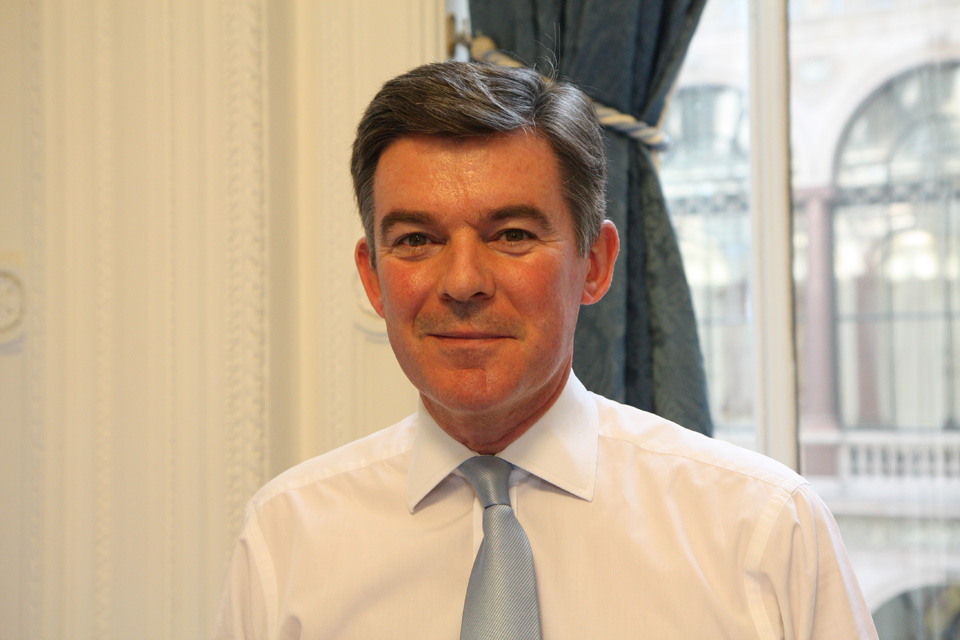Ministerial Written Statement: Government Olympic Executive (GOE) Quarterly Report, December 2011
Tuesday 6 December 2011 **The Minister for Sport and the Olympics (Hugh Robertson): ** I am publishing today the Government Olympic Executive…

Tuesday 6 December 2011
**The Minister for Sport and the Olympics (Hugh Robertson):
**
I am publishing today the Government Olympic Executive’s Quarterly Report - London 2012 Olympic and Paralympic Games Quarterly Report December 2011. This report explains the latest budget position as at 30 September 2011, and outlines some of the investments which are being made to capitalise on the London 2012 Olympic and Paralympic Games.
The Anticipated Final Cost (AFC) of the Olympic Delivery Authority’s (ODA) construction and infrastructure programme is £6.856bn. This is a decrease of £394m since July - including £333m that the ODA has returned to DCMS for transformation work to be carried out by the Olympic Park Legacy Company (OPLC), and savings of £61m. On a like for like basis with previous reports, which included the transformation work in ODA’s programme, the ODA’s AFC stands at £7.189bn.
The ODA has achieved £42m of savings in the quarter, taking the total amount of savings achieved since the November 2007 baseline to over £910m. Construction of the venues and infrastructure for the Games is 92 per cent complete with the majority of venues on the Olympic Park now complete. Contracts for the sale of the Olympic Village to Delancey/Qatari Diar (QDD) joint venture have been exchanged generating a net benefit of £14m above previous the forecast.
With just over eight months to go until the Opening Ceremony of the London 2012 Olympic and Paralympic Games, we’re in a strong position and the list of completed venues now includes the Velodrome (nominated for the RIBA Stirling Prize 2011), the main Stadium, the Handball Arena, the Basketball Arena, the Aquatics Centre and the International Broadcast Centre (IBC). During the ‘One Year to Go’ celebrations at the end of July, the completed Aquatics Centre was unveiled to the public and diver Tom Daly marked the occasion by taking the first official dive into the pool.
The consistent and careful management of the London 2012 programme has enabled us to fund additional security requirements, and invest in projects to help drive economic growth and tourism as a result of the Games, all while staying within the £9.3bn public sector funding package (PSFP).
The Home Office and LOCOG have undertaken detailed analysis of the venue security staff that will be needed across the UK across a range of London 2012 venues next summer. Our priority is to deliver a safe and secure Games therefore we have allocated an additional £271m for venue security. This figure includes the recruitment and training of 23,700 venue security personnel based on more than 100 competition and non-competition venues across the UK.
We are confident that the core safety and security programme can be delivered within the £475m announced in December 2010’s Spending Review settlement. In order to test the effectiveness, resilience and decision-making capability of key Games-time structures and processes, we have also apportioned a further £2.8m for Games-time command, coordination and communication testing.
Historically, the opening and closing ceremonies are some of the most memorable and enduring spectacles from every Olympic and Paralympic Games. They represent a unique opportunity to showcase the creative talent of the host nation to a global audience of billions. The four ceremonies will have an equivalent airtime value estimated at between £2bn and £5bn. To ensure that the UK capitalises on this opportunity, the Government has made available up to £41m to LOCOG (£7m of which is Government-held contingency) to support the delivery of the four Olympic and Paralympic ceremonies.
The Government has also allocated £25m from the PSFP for domestic and international campaigns to drive economic benefits, including tourism, from the Games. The ‘GREAT’ campaign launched by the Prime Minister in the autumn and led by VisitBritain, will promote the UK as a destination for tourism and inward investment in key overseas markets. Run in partnership with UKTI, FCO and British Council we estimate that this campaign will attract an extra 800,000 visitors, generating around £400m of additional spend per annum, as well as attracting £1bn worth of additional trade and investment. The 70 day Olympic Torch Relay is a unique opportunity for each of our regions to showcase their culture and heritage to a national audience. Funding of up to £4m has been released so that we can use the tour to increase domestic tourism across the UK. Through the domestic tourism campaign, it is estimated that 5.3m additional short break nights will be generated by 2015, creating around £480m of additional consumer spending.
I would like to commend this report to the members of both Houses and thank them for their continued interest in and support for the London 2012 Games.
Copies of the Quarterly Report December 2011 are available online on the DCMS website and will be deposited in the libraries of both Houses.